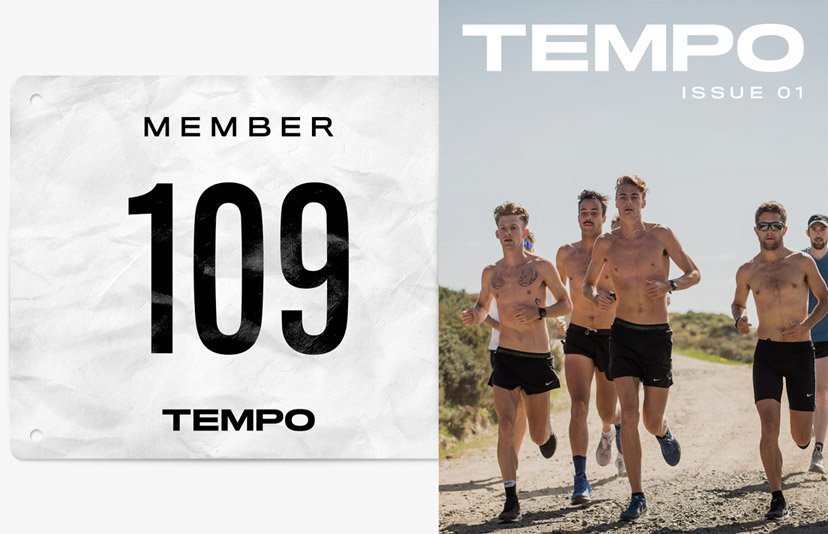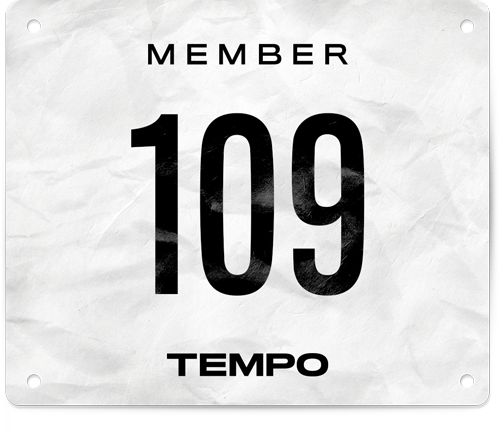Performance
This is Bendere Oboya
Getting to know the dominant 400m runner
Bendere Oboya is one of athletics’ more compelling and intriguing characters. Compelling, because she is downright dominant. Oboya hasn’t lost a 400m in Australia in more than two years and currently has a win streak of 23 races. She ran the qualifying time for Tokyo all the way back in Doha at the 2019 World Championships - so while scores of Aussie athletes are just trying to get close enough to the time to run a qualifier, Oboya had that in the bag before COVID ever existed.
Intriguing because Oboya shares little about herself; we know she switched coaches, she wins a lot, and has lofty goals. Beyond that, I’ve watched countless post-race interviews and scoured articles and social media looking for insight into what makes Oboya tick, without much success.
With Oboya making a flying visit to Melbourne recently for the Melbourne Track Classic, I had the opportunity to interview her the day after the meet.
Oboya won the 400m in Melbourne in a time of 53.01 - and as she stood in a holding area waiting to be interviewed by Tamsyn Manou, we made eye contact. Before I could offer any sort of worthless ‘hey nice run’ or ‘congrats’, Oboya shook her head at me to indicate her displeasure, and as if to say ‘don’t you dare say anything good about that run’. As she walked to the microphone to speak with Manou, one spike was kicked off in a sign of further displeasure. I was getting nervous for the coffee we had scheduled early the following morning.
I soon realised however, that Oboya is a different person on the track. Off it, she’s sweet, humble, and wide eyed - curious about a range of topics and somewhat softly spoken. On track, well you know what happens on track. Oboya’s not bothered with beating her opponents - she’s more interested in racing the clock. I wonder then, would more competition help her run faster?
“I don’t want to be in races where I’m the fastest all the time. I want to be out on the world stage competing against the best in the world. I don’t want to be winning all the time - I need to lose some races, because those are the races that build you.”
“I don’t think much of being unbeaten for so long. I don’t want to just be the best in Australia.”
Bendere Oboya
Oboya hasn’t had a lot of opportunities on the world stage - she’s about to turn 21 after all, but her most recent opportunity was at the Doha World Championships in 2019. There, Oboya made sure she maximised the opportunity - placing 3rd in her heat and clocking the Olympic qualifier, running 51.21. And while her 51.58 in the semi wasn’t enough to keep it moving, there’s a clear intent from Oboya - it’s not about getting to the world stage, it’s about performing on the world stage - it’s a simple but very clear distinction.
Speaking of the world stage, and this is a somewhat irresponsible segue, but for years people have referred to Oboya as ‘the next Cathy Freeman’. Freeman of course is one of Australia’s greatest icons, and holds a 400m PB of 48.63 - so the comparisons seem a little unfair, serving only to heap pressure on Oboya. But if she’s feeling it, she doesn’t show it.
“I wouldn’t want to be compared to anyone else. She’s amazing. But I want to make my own name, I want to be Bendere Oboya. But I understand it, it draws people in.
I’ve never met her, I would love to though one day.”
So there you have it - quit it with the Cathy Freeman comparisons, and let Bendere by Bendere.
Away from the track, Oboya is in many ways a typical young person. She’s happiest when she’s out enjoying the independence that comes with finishing school and becoming an adult.
“Getting a car was a big part of growing up for me - I love going on adventures, just getting outside for sunrise or sunset. I’m not a big group person - I like to be alone or with one friend and just go and do things.”
Another interest of Oboya’s is something we have in common - photography. She shares her work on a separate Instagram account, her images show a keen understanding of light and a connection to her subjects. It’s often true of introverts - they may appear reserved, but Oboya reaches out to people through her imagery.
“Photography has been a great creative outlet. I like stepping out of the athlete bubble and for a few hours I can just forget about athletics. I think as an athlete it’s important to be able to switch off from it.
I like making people happy. I like seeing people doing things they love. I shot a friend of mine who is a ballerina, posing on the beach and she looked so happy. I like doing that.”
Before we finish our conversation, I want to ask Oboya about being a role model. Growing up in Western Sydney, Oboya didn’t see girls that looked like her on the athletics scene. Oboya knows it’s important that she is visible to other girls like her, but she isn’t focused on colour.
“I do get a lot of messages sometimes from young girls asking for advice or something. It takes me a few days but I try and get back to all of them!"
“I don’t think about colour when I’m inspiring someone. Last night at the meet there was this little girl who was staring at me, and she asked for my bib. She didn’t look anything like me, she had blonde hair and blue eyes. We were leaving the stadium at the same time and the look on her face when we spoke and I gave her my bib - she was so happy.”
At the age of 20, Oboya could be forgiven for enjoying the ride and everything that comes with being a star athlete with the world at her feet. Sponsorships, a probable Olympics birth, and a dominant domestic record. But she offers one last remark that provides an exclamation point on her maturity and perspective.
“I dream past athletics. I haven’t been back to Ethiopia since I was about 3, but i’ve always dreamed of going back and helping people.
I don’t see myself as just an athlete. Athletics is a stepping stone to get me where I want to be.”


